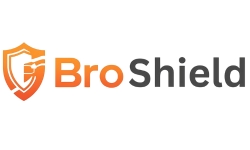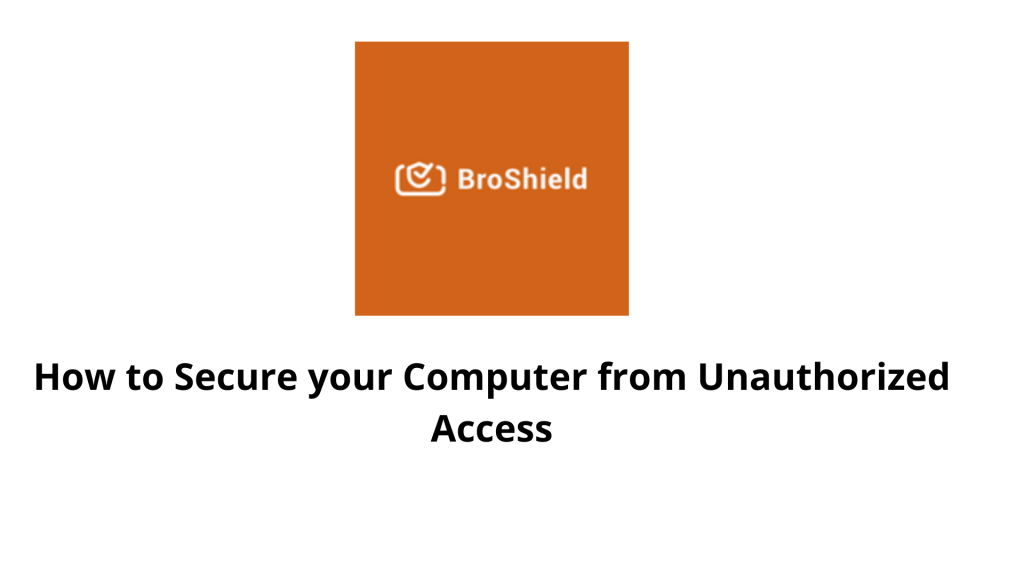We’ll talk about “How to Protect Your Computer from Unauthorized Access” in this article. Let’s talk about a few things before we get into the main topic.
What is Un authorized access?
Unauthorized Access is a term used to describe unauthorised access to a computer system. We use passwords on our desktops and personal computers to ensure that no one else can access our information without our permission. Essentially, we want to keep illegal immigrants out. While “hacking” is a commonly used phrase to characterise this illegal activity, it is vital to note that it is not limited to physical access. Someone may be hundreds of miles away and still have access to your files and data without your permission.
The majority of users wish to take safeguards to protect their computers from unauthorised access. Having a secure computer can provide you piece of mind, whether it’s for virus protection or to keep your personal information protected. The sections that follow go over various methods for protecting your computer from intruders. Continue by reading each section or selecting one that interests you from the list below.
Read Also – How to Stop Hackers on Your Computer
How can you keep your PC safe from cybercriminals?
Despite the prevalence of computer hackers, most businesses use the internet to check their finances, purchase and maintain inventory, execute marketing and public relations campaigns, connect with consumers, participate in social media, and do other vital tasks. Despite this, huge computer breaches continue to be reported, even at large organisations with sophisticated security procedures in place.
Small businesses are frequently targeted, particularly because they may misjudge the threat of cybercrime and lack the financial capacity to implement costly cybersecurity solutions. To keep your devices safe and sensitive data secure, follow these guidelines:
1. Use a firewall as a first line of defence
Firewalls are incorporated into Windows[1] and macOS, and they serve as a barrier between your data and the rest of the world. Firewalls protect your company’s network from unwanted access and notify you of any attempted intrusions.
Before going online, make sure your firewall is turned on. Depending on your broadband router, which also includes a built-in firewall that secures your network, you can also acquire a hardware firewall from businesses such as Cisco, Sophos, or Fortinet. You can buy an additional business networking firewall if you have a bigger company.
2. Use passwords that are difficult to guess
The most important strategy to prevent network breaches is to use safe passwords. A hacker will have a harder time breaking into your system if your passwords are safe.
More secure often entails a longer and more complicated process. Make your password at least eight characters long and include a mix of numbers, uppercase and lowercase letters, and computer symbols. Hackers have a toolkit that allows them to break short, simple passwords in minutes.
Use no identifiable phrases or combinations that could be linked to you, such as birthdays or other personal information. Don’t use the same password twice. Consider utilising a password manager if you have a lot of passwords to remember.
What Constitutes a Weak Password?
A password should be unique and exceedingly difficult to guess. On the other hand, the majority of people do not have a strong password. Phone numbers, pet names, dates of birth, and the names of townspeople’s homes are all used as passwords, resulting in a password that is weak.
In most cases, weak passwords are made up of just letters, making them relatively easy to guess. The vast majority of the time, a person’s basic knowledge is enough to guess passwords.
Actually, the majority of the time, we all create passwords that are easy to remember. This should not, however, come at the expense of your confidential information. Creating a password policy and enforcing it For businesses to avoid all of these problems, the best strategy is to make sure that every employee follows it.
3. Make sure your operating system, programmes, and browser are all up to date
Always keep your operating systems up to date by installing new updates. The majority of updates feature security improvements that prevent hackers from gaining access to and exploiting your information. Apps are no different. Web browsers are becoming more intelligent, especially in terms of privacy and security. In addition to applying all new updates, make sure to verify your browser’s security settings. You may use your browser, for example, to prohibit websites from tracking your movements, thereby increasing your online privacy. Alternatively, you can use one of these private web browsers.
4. Don’t pay attention to spam
Always be wary of emails from unknown senders, and never click on links or open attachments in them. Spam filters in email inboxes have gotten very good at catching the most obvious spam. However, it is more advanced. However, more sophisticated phishing emails that imitate your friends, associates, and trustworthy businesses (such as your bank) have become more popular, so be wary of anything that looks or sounds strange.
5. Make a backup of your PC
If your company isn’t backing up its hard drive yet, you should start doing so right now. Backing up your data is essential in the event that hackers succeed in breaking into your system and destroying it.
Always ensure that you can recover as quickly as possible if your data is breached or lost. Start with the backup applications integrated into macOS (Time Machine) and Windows (File History). These utilities can also benefit from having enough capacity on an external backup hard disc.
6. Turn it off
Many organisations, particularly those that run a web server, are always “all systems go.” If you’re not running a complex internet-based business, though, turn off your computer at night or when you’re not working for long periods of time. Shutting down breaks any connection a hacker may have established with your network and disrupts any potential mischief; leaving your computer on all the time makes it more visible and available to hackers; leaving it on all the time makes it more visible and available to hackers; leaving it on all the time makes it more visible and available to hackers; leaving it on all the time makes it more visible and available to hackers.
7. Take advantage of virtualization
You don’t have to go this path, but if you visit shady websites, you may expect to be inundated with spyware and viruses. While avoiding hazardous websites is the best strategy to avoid browser-based intrusions, virtualization allows you to operate your browser in a virtual environment.
8. Keep your network safe
Most routers do not have the maximum security settings enabled by default. Log in to the router and set a password using a safe, encrypted setup while configuring your network. This keeps attackers out of your network and keeps them from meddling with your settings.
9. Authentication using two factors is recommended
Passwords are the first line of defence against computer hackers, but adding a second layer of protection increases security. Many websites allow you to set two-factor authentication, which increases security by requiring you to log in with both your password and a numerical code given to your phone or email address.
10. Encrypt your data
Even if thieves acquire access to your network and files, encryption can prevent them from gaining access to any of your data. You can use BitLocker (Windows) or FileVault (Mac) to encrypt your hard drive, encrypt any USB flash drive that holds sensitive information, and utilise a VPN to secure web traffic. Only shop on encrypted websites, which may be identified by the “https” in the address bar and a closed-padlock icon.
11. Remove Bluetooth from your device
Turn Bluetooth off when you aren’t using it. Leaving your Bluetooth turned on but unplugged gives hackers another entry point.
12. Avoid using public Wi-Fi that isn’t password protected
There are no security safeguards on password-free, frequently utilised Wi-Fi networks. As a result, computer hackers target them frequently.
13. Install a security app on your smartphone
Install a security programme on your phone, just as you would on your PC, which includes a firewall, antivirus software, and anti-spyware. Broshield, Brosecure,Avast, Kaspersky Mobile Antivirus, and Bitdefender are some of the most popular choices.
14. Make your passcode more secure.
0000 and 1234 are simple to remember, but they’re also simple to guess. Rather, use a six-digit passcode that is generated at random.
15. Autocomplete should be turned off
Autocomplete is a feature that predicts what you’re typing and fills in the blanks. While useful, this technology effectively gives hackers access to your email address, mailing address, phone number, and other personal data. Turn off the machine.
16. Delete the history of your web searches
Your mobile web browser, too, keeps track of your browsing habits. Clear it frequently, including cookies and cached files, to provide hackers as little information as possible if they do gain access to your phone.
17. Set up an anti-spyware programme
Spyware is a type of software that watches and collects personal and organisational data invisibly. It is designed to be difficult to detect and delete, and it frequently displays unsolicitedadvertisements or search results that are intended to lead you to specific (often malicious) websites.
To acquire access to passwords and other financial information, some spyware captures every input. Although anti-spyware is focused solely on this danger, it is frequently included in major antivirus packages such as those from Webroot, McAfee, and Norton. Anti-spyware software protects you in real time by screening all incoming data and blocking threats.
18. Get antivirus software installed.
Malware and computer viruses are all over the internet. Antivirus software such as Broshield ,Broecure, Bitdefender, Panda Free Antivirus, Malwarebytes, and Avast safeguard your computer from malicious code and software. Viruses can have obvious impacts, such as slowing your computer or deleting important information, or they can be subtle.
Antivirus software protects your system by detecting real-time threats and ensuring the security of your data. Automatic updates are available in certain advanced antivirus systems, further protecting your machine from the new threats that arise every day. Don’t forget to utilise your antivirus application once you’ve installed it. Keep your computer virus-free by running or scheduling frequent virus scans.
In this instance, Broshield antivirus is highly recommended – How to Protect Your Computer from Unauthorized Access
BroShield should be your first choice if you want to get rid of unwanted snoop ware from your computer because it has exceptional anti-snooping and virus detection capabilities. Your PC will be safe with BroShield security. BroShield gives you ultimate control over your internet usage. You can keep a close eye on what your youngster is exposed to. You have the ability to block pornographic websites as well as potentially harmful material.
Allows you to keep track of how much time you spend online. On the internet, there are still a handful of illegal websites. Our children must be protected from pornographic, gambling, and other inappropriate websites. You may be exposed to viruses and other hazardous elements if you visit such sites. BroShield monitors the computer for viruses and risks 24 hours a day, seven days a week, and keeps it under constant observation to prevent any potential threats. In order to avoid being hacked, BroShield’s fail-safe mechanism is designed to look for all remote snooping actions.
Conclusion: How to Protect Your Computer from Unauthorized Access
While we all like utilising the internet, we are oblivious to the dangers it offers. This article was written to help people recognise online threats and prevent being hacked, as well as how to protect their computers from hackers. We hope you found this article to be informative. Contact Broshield to know about “How to Protect Your Computer from Unauthorized Access”




